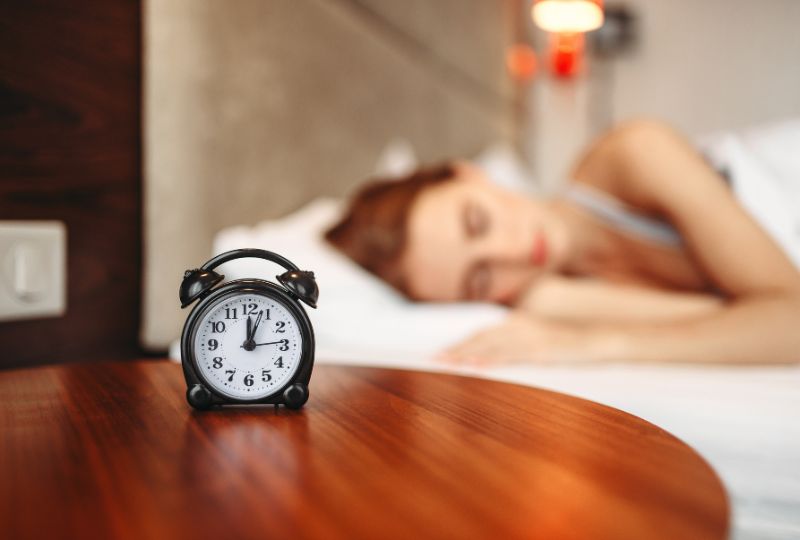Sleep is one of the most important factors for overall well-being, yet many people underestimate its impact. Lack of sleep doesn’t just leave you feeling tired—it affects mental clarity, emotional balance, immune function, and long-term health.
When you prioritize high-quality sleep, you experience increased productivity, improved mood, and better physical health. But when sleep is disrupted or insufficient, it leads to fatigue, stress, and decreased performance.
In this guide, you’ll learn how sleep affects productivity and health, plus practical tips to improve sleep quality.
Why Sleep Is Essential for Productivity and Health
✅ Boosts cognitive function → Improves memory, focus, and decision-making.
✅ Enhances mood and emotional balance → Reduces stress and irritability.
✅ Strengthens the immune system → Helps fight illness and inflammation.
✅ Regulates metabolism → Supports weight management and digestion.
✅ Increases energy and motivation → Prevents burnout and fatigue.
Now, let’s explore how sleep impacts different aspects of life and how to improve it.
1. Sleep and Productivity: How Rest Affects Work Performance
A good night’s sleep sharpens focus and improves efficiency, while sleep deprivation makes tasks feel harder.
✅ How Sleep Enhances Productivity:
- Increases mental clarity and problem-solving skills.
- Boosts creativity and concentration.
- Improves decision-making and reaction time.
🔹 Lack of sleep causes:
- Brain fog and forgetfulness.
- Poor time management and slower thinking.
- Increased errors and reduced performance.
✅ How to Improve Work Performance Through Better Sleep:
- Aim for 7–9 hours of sleep per night.
- Take short breaks during the day to avoid mental fatigue.
- Use power naps (10–20 minutes) to refresh your brain.
2. Sleep and Mental Health: The Link Between Rest and Emotional Well-Being
Sleep plays a critical role in emotional balance and stress management.
✅ How Sleep Affects Mental Health:
- Reduces stress and anxiety by regulating cortisol levels.
- Helps process emotions and improves mood stability.
- Supports mental resilience and coping abilities.
🔹 Lack of sleep leads to:
- Increased anxiety and irritability.
- Higher risk of depression and emotional instability.
- Lower motivation and confidence.
✅ How to Improve Sleep for Better Mental Health:
- Stick to a consistent bedtime and wake-up schedule.
- Avoid screen time at least 30 minutes before bed.
- Try deep breathing or meditation before sleep. You might also explore aromatherapy for relaxation and stress relief to help calm your mind and ease into a restful night.
3. Sleep and Physical Health: The Body’s Natural Repair System
While you sleep, your body repairs muscles, balances hormones, and restores energy.
✅ How Sleep Supports Physical Health:
- Strengthens the immune system and reduces inflammation.
- Helps regulate blood sugar and metabolism.
- Supports heart health and blood pressure regulation.
🔹 Poor sleep contributes to:
- Weight gain and slower metabolism.
- Increased risk of heart disease and diabetes.
- Weakened immune system and frequent illness.
✅ How to Improve Sleep for Better Physical Health:
- Get morning sunlight to regulate your sleep cycle.
- Exercise regularly, but not too close to bedtime.
- Avoid heavy meals and caffeine in the evening.
4. Sleep and Memory: How Rest Strengthens Learning and Retention
While you sleep, the brain organizes and stores new information, making sleep essential for memory retention.
✅ How Sleep Boosts Memory:
- Strengthens long-term knowledge retention.
- Improves learning and skill development.
- Enhances problem-solving abilities.
🔹 Lack of sleep causes:
- Forgetfulness and poor recall.
- Difficulty learning new skills.
- Lower concentration and comprehension.
✅ How to Improve Sleep for Better Memory:
- Follow a wind-down routine before bed.
- Keep your sleep environment dark and quiet.
- Take short breaks while studying or working to help memory consolidation.
5. Signs You’re Not Getting Enough Sleep
If you experience any of these symptoms, your sleep may need improvement:
🔹 Daytime fatigue or drowsiness.
🔹 Trouble concentrating or remembering things.
🔹 Frequent mood swings or irritability.
🔹 Waking up feeling unrested, even after sleeping for hours.
🔹 Increased cravings for sugar and caffeine.
✅ How to Fix It:
- Go to bed 30 minutes earlier each night.
- Limit alcohol and caffeine in the evening.
- Create a relaxing nighttime routine (reading, stretching, aromatherapy).
How to Build Better Sleep Habits
🔹 Set a consistent bedtime → Go to bed and wake up at the same time daily.
🔹 Create a relaxing nighttime routine → Avoid screens and practice calming activities.
🔹 Make your bedroom sleep-friendly → Keep it cool, dark, and quiet.
🔹 Limit naps → Keep naps short (10–20 minutes) and avoid late-afternoon naps.
🔹 Manage stress before bed → Try deep breathing, journaling, or meditation.
Starting your day right can also support better sleep cycles—consider adding morning breathing techniques to boost energy and regulate your internal clock.
Final Thoughts
Good sleep is essential for productivity, mental health, and physical well-being. By making small changes to your sleep habits, you can wake up feeling energized, focused, and ready to take on the day.
What’s one sleep habit you’ll improve starting tonight? 😊
